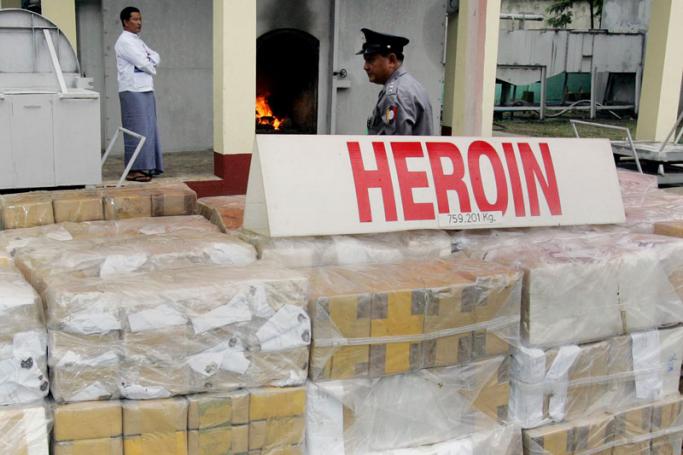Myanmar has seized 370 kilogrammes (815 pounds) of heroin worth $4.7 million during a raid in the northeast, police said, the latest big bust in the world's second-largest opium producer after Afghanistan.
Weak rule of law and conflict-riddled border areas allow industrial-size trade in heroin, pills and crystal methamphetamine -- known as ice -- to flourish, even as massive drug seizures routinely grab headlines.
The most recent narcotics batch was discovered in a truck outside a monastery near the Shan state capital Taunggyi on Saturday night, police said in a statement Sunday.
Two men were arrested after officers found them with "62 bags containing 170kg of white heroin and 200kg of brown heroin", it said, referring to colours indicating levels of purity.
The bust was worth a little more than 7 billion kyats, or nearly $4.7 million.
Authorities in the area could not be reached for additional comment.
Though still vast, the cultivation of opium -- the base ingredient for heroin -- has declined in Myanmar as demand for methamphetamine surges.
In 2017, 41,000 hectares (101,300 acres) of land was being used to grow poppies compared to 55,000 hectares in 2015, according to estimates by the United Nations Office on Drugs and Crime (UNODC).
In the 1970s and 1980s, Myanmar was the leader in global opium production in the "Golden Triangle" -- a region spanning borders of Myanmar, Thailand and Laos -- before Afghan farmers started to dominate the market.
Many of the country's drug gangs have in recent years switched to meth, feeding the growing popularity across the Asia-Pacific for crystallised "ice" and the lower-grade caffeine-laced "yaba" pills.
Precursor chemicals to make meth are flooding into the country from India and China, fuelling the multi-billion-dollar trade that has skyrocketed to what the UNODC calls "alarming" levels.
© AFP












